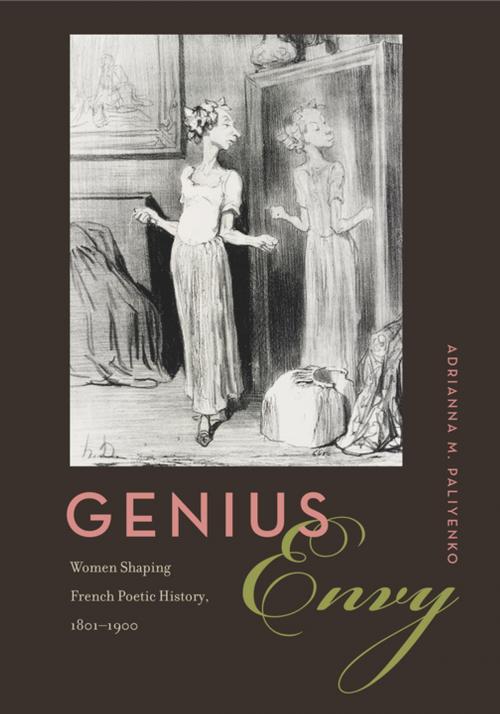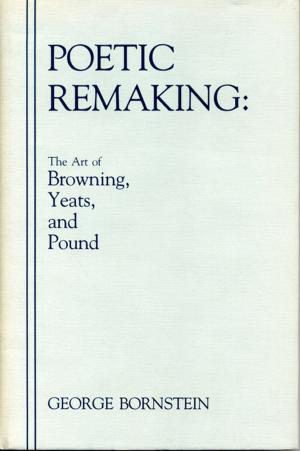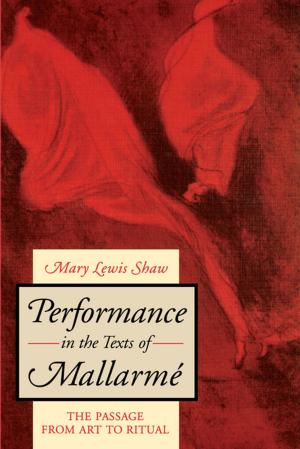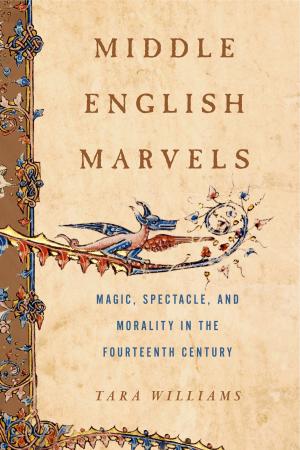Genius Envy
Women Shaping French Poetic History, 1801–1900
Fiction & Literature, Literary Theory & Criticism, Feminist Criticism, Poetry History & Criticism, Nonfiction, Entertainment, Drama, Continental European| Author: | Adrianna M. Paliyenko | ISBN: | 9780271079172 |
| Publisher: | Penn State University Press | Publication: | January 24, 2017 |
| Imprint: | Penn State University Press | Language: | English |
| Author: | Adrianna M. Paliyenko |
| ISBN: | 9780271079172 |
| Publisher: | Penn State University Press |
| Publication: | January 24, 2017 |
| Imprint: | Penn State University Press |
| Language: | English |
In Genius Envy, Adrianna M. Paliyenko uncovers a forgotten history: the multiplicity and diversity of nineteenth-century French women’s poetic voices. Conservative critics of the time attributed the phenomenon of genius to masculinity and dismissed the work of female authors as “feminine literature.” Despite the efforts of leading thinkers, critics, and literary historians to erase women from the pages of literary history, Paliyenko shows how these female poets invigorated the debate about the origins of genius and garnered considerable recognition in their time for their creativity and bold aesthetic ideas.
This fresh account of French women poets’ contributions to literature probes the history of their critical reception. The result is an encounter with the texts of celebrated writers such as Marceline Desbordes-Valmore, Anaïs Ségalas, Malvina Blanchecotte, Louisa Siefert, and Louise Ackermann. Glimpses at the different stages of each poet’s career show that these women explicitly challenged the notion of genius as gender specific, thus advocating for their rightful place in the canon.
A prodigious contribution to studies of nineteenth-century French poetry, Paliyenko’s book reexamines the reception of poetry by women within and beyond its original context. This balanced and comprehensive treatment of their work uncovers the multiple ways in which women poets sought to define their place in history.
In Genius Envy, Adrianna M. Paliyenko uncovers a forgotten history: the multiplicity and diversity of nineteenth-century French women’s poetic voices. Conservative critics of the time attributed the phenomenon of genius to masculinity and dismissed the work of female authors as “feminine literature.” Despite the efforts of leading thinkers, critics, and literary historians to erase women from the pages of literary history, Paliyenko shows how these female poets invigorated the debate about the origins of genius and garnered considerable recognition in their time for their creativity and bold aesthetic ideas.
This fresh account of French women poets’ contributions to literature probes the history of their critical reception. The result is an encounter with the texts of celebrated writers such as Marceline Desbordes-Valmore, Anaïs Ségalas, Malvina Blanchecotte, Louisa Siefert, and Louise Ackermann. Glimpses at the different stages of each poet’s career show that these women explicitly challenged the notion of genius as gender specific, thus advocating for their rightful place in the canon.
A prodigious contribution to studies of nineteenth-century French poetry, Paliyenko’s book reexamines the reception of poetry by women within and beyond its original context. This balanced and comprehensive treatment of their work uncovers the multiple ways in which women poets sought to define their place in history.















